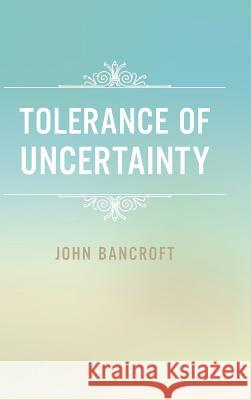Tolerance of Uncertainty » książka
Tolerance of Uncertainty
ISBN-13: 9781496929358 / Angielski / Twarda / 2014 / 326 str.
Tolerance of Uncertainty
ISBN-13: 9781496929358 / Angielski / Twarda / 2014 / 326 str.
(netto: 126,61 VAT: 5%)
Najniższa cena z 30 dni: 131,49
ok. 16-18 dni roboczych.
Darmowa dostawa!
Late in his life, the author came to realize that there was much in his world that was uncertain. How should he deal with that? In this book, he explores how some scientists have tolerated uncertainty and goes on to consider uncertainty in relation to our morals. The subjugation of women has been a major moral problem through history, characterized by certainty. In his view, this has fostered many other immoralities (e.g. slavery). He then reviews the world's main religions. To what extent have they accepted uncertainty, and how have they dealt with sex and women? How do individuals cope with religious uncertainty? By the end of the book, he makes the clear distinction between unknowability (reflecting the limitations of our comprehension, which we should respect) and uncertainty (which is more relevant to our day-to-day experiences, which we need to cope with and tolerate). For this purpose, he proposes models of reality that we could use, assessing the extent that they have been helpful and modifying them as necessary. He sees this modelism as having general significance, and to illustrate this, he proposes a radical model for incorporating both women and men into our society: a two-team approach. Tolerance of uncertainty is of fundamental importance to us all. Certainty is often problematic and should be viewed with caution.











